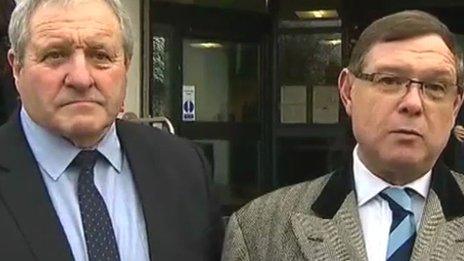No public inquiry into Lynette White police corruption case
- Published
Eight police officers were acquitted of perverting the course of justice when evidence temporarily went missing
There will be no public inquiry into the handling of a police corruption trial surrounding a notorious murder case, the Home Office has confirmed.
Lynette White was stabbed more than 50 times in 1988 in the Cardiff docklands flat where she worked as a prostitute.
The wrongful conviction of three men later led to the failed 2011 police corruption case at Swansea Crown Court.
Lawyers for the three wrongly convicted men said they will challenge the decision made by Theresa May.
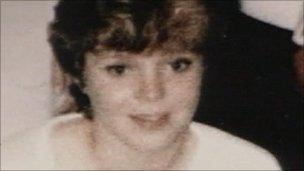
Lynette White was murdered on St Valentine's Day in 1988 in a flat in Butetown, Cardiff
Miss White, 20, was murdered on St Valentine's Day 1988 at the flat in Butetown where she took clients.
Stephen Miller, Tony Paris and Yusef Abdullahi, who became known as the Cardiff Three, were wrongly convicted of her murder and jailed for life in 1990.
Their convictions were quashed in 1992 and they were freed.
More than a decade later, the real murderer was identified using DNA technology. Jeffrey Gafoor confessed to stabbing her during a row and he was jailed.
An investigation into alleged police corruption at the South Wales force was launched as a result of the wrongful conviction the Cardiff Three.
It became Britain's biggest police corruption case, costing an estimated £30m.
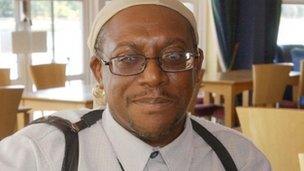
Tony Paris was said to be "upset, fed-up and frustrated" by the decision
But the prosecution of eight former police officers and two others was halted in December 2011 when Swansea Crown Court was told certain documents had been destroyed by the police.
Former officers Graham Mouncher, Thomas Page, Richard Powell, John Seaford, Michael Daniels, Peter Greenwood, Paul Jennings and Paul Stephen were all acquitted.
At the time, the Independent Police Complaints Commission said the mistakes over the handling of documents before the collapse did not warrant formal misconduct action.
A Home Office spokesperson said: "The home secretary has decided there should be no further inquiry or review at this stage into the matters surrounding the collapse of the 2011 trial.
"The home secretary will review her decision upon the completion of a related investigation being undertaken by Devon and Cornwall Police on behalf of South Wales Police."
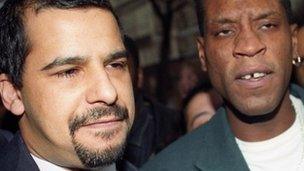
Yusef Abdullahi - who died in 2011 - and Stephen Miller were cleared of murder on appeal
Speaking on Friday, Matthew Gold, who represents Mr Miller, said: "The secretary of state's decision not to hold a public inquiry into the reasons for the collapse of the Swansea trial flies in the face of logic and justice.
"The decision was taken despite the government accepting that there is genuine public concern, issues have not been investigated, and that an inquiry may assist with understanding what happened.
"The secretary of state has failed to consider a narrower inquiry that will involve less public expense. This is a serious omission."
Mr Gold said the "victims of the original miscarriage of justice will continue to fight for the right to know what happened".
Kate Maynard who represents Tony Paris said he was "upset, fed-up and frustrated" about the decision not to hold a public inquiry.
The lawyers who represent Mr Paris and Mr Abdullahi, who died in 2011, are expected to challenge Home Secretary Theresa May's decision in the High Court early next year.
- Published16 July 2013
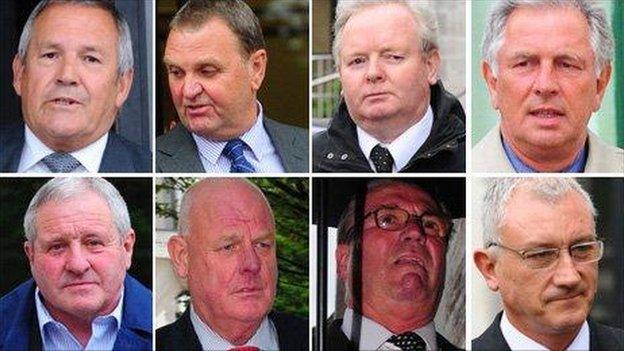
- Published14 June 2016
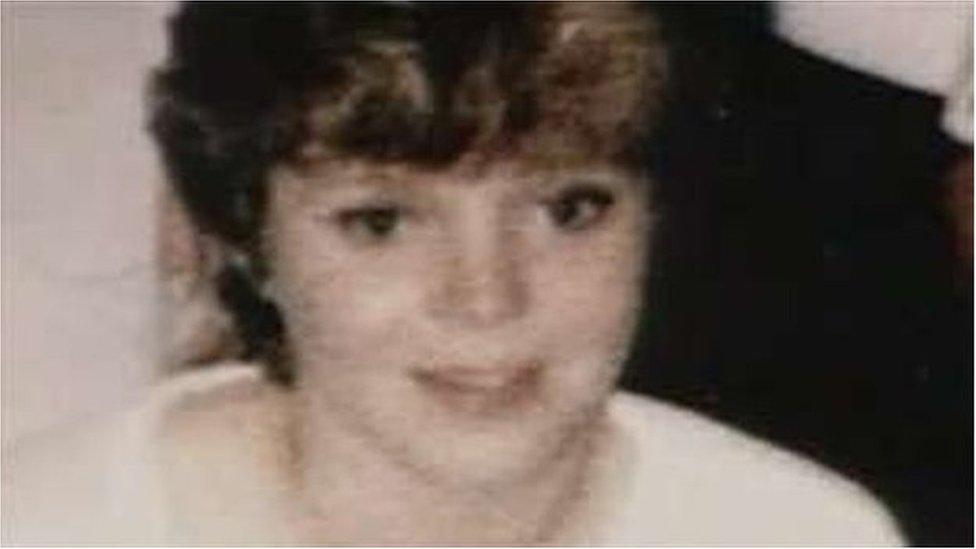
- Published30 November 2012
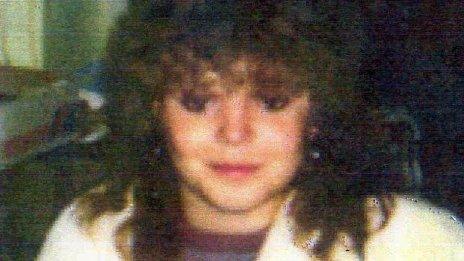
- Published27 January 2012

- Published1 December 2011
